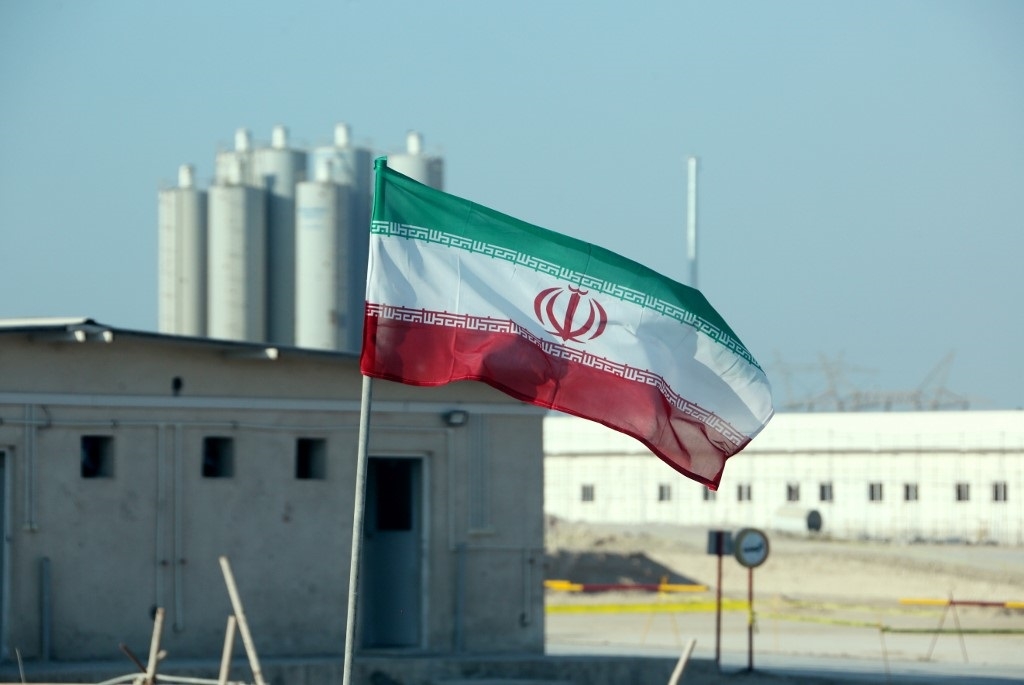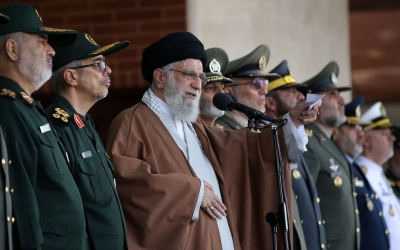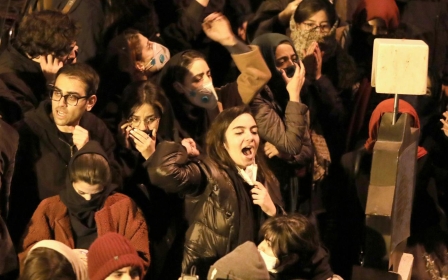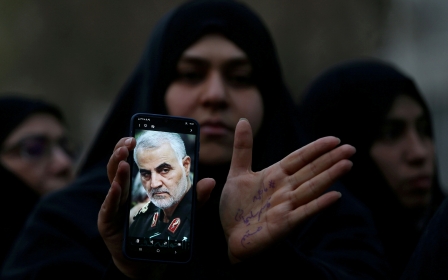Europeans trigger dispute mechanism in Iran nuclear deal

France, Britain and Germany formally triggered the dispute mechanism in Iran's nuclear deal with world powers on Tuesday, the strongest step they have taken so far to enforce an agreement that requires Iran to curb its nuclear programme.
The European powers said they had taken the step to avoid a crisis over nuclear proliferation being added to an escalating confrontation in the Middle East.
In a statement, they said they still want the deal to succeed and were not joining a "maximum pressure" campaign against Iran by the United States, which abandoned the deal in 2018 and has reimposed sanctions.
Triggering the dispute mechanism amounts to formally accusing Iran of violating the terms of the agreement and could lead eventually to the reimposition - or "snapback" - of UN sanctions that were lifted under the deal.
Iran has gradually rolled back its commitments under the accord since the United States quit, arguing that it has the right to do so because of Washington's actions.
"We do not accept the argument that Iran is entitled to reduce compliance with the JCPOA," the three European countries said in a joint statement, referring to the agreement's official name, the Joint Comprehensive Plan of Action.
In triggering the dispute mechanism, "our three countries are not joining a campaign to implement maximum pressure against Iran. Our hope is to bring Iran back into full compliance with its commitments under the JCPOA".
To trigger the dispute mechanism, the three European countries notified the European Union, which acts as guarantor of the agreement. The EU's foreign policy chief, Joseph Borrell, said the bloc's aim was not to reimpose sanctions, but to "resolve issues relating to the implementation" of the deal.
"This is a very dangerous step by the E3," said Trita Parsi, Executive Vice president of the Quincy Institute for Responsible Statecraft.
"If it leads to the snapping back of UN sanctions, it will not only ensure the death of the JCPOA, it may also prompt Iran to leave the non-proliferation treaty (NPT) altogether. That would be a disaster," he told Middle East Eye.
After months of announcing gradual steps to reduce compliance, Iran said on 6 January that it would scrap all limits on enriching uranium, but would continue cooperating with the UN nuclear watchdog.
Nuclear diplomacy is at the heart of a broader confrontation between Iran and the US, which killed Tehran's most powerful military commander in a drone strike on 3 January after tit-for-tat exchanges that began with the killing of an American contractor on an Iraqi base.
"The EU calculation appears rooted in the idea that Iran is really weak and isolated, now mindful of domestic protests and intentional anger at the shooting down of the Ukrainian airliner," said Parsi. "That is a very risky calculation, though, particularly if it leads to Iran leaving the NPT."
The European countries said in their statement they were acting "in good faith with the overarching objective of preserving the JCPOA and in the sincere hope of finding a way forward to resolve the impasse through constructive diplomatic dialogue, while preserving the agreement and remaining within its framework.
"Given recent events, it is all the more important that we do not add a nuclear proliferation crisis to the current escalation threatening the whole region," they said.
Later on Tuesday Iran's Foreign Minister Mohammad Javad Zarif warned against triggering the dispute mechanism, according to the semi-official Fars news agency.
"The usage of the dispute mechanism is legally baseless and a strategic mistake from a political standpoint," Zarif said.
A new Trump deal?
US President Donald Trump abandoned the nuclear deal in 2018, arguing that the agreement reached under his predecessor Barack Obama was too weak and new sanctions were needed to force Iran to accept more stringent terms.
Iran has said it will not negotiate unless sanctions are lifted.
In one of the strongest calls yet from Europe for a new agreement to replace the deal, British Prime Minister Boris Johnson said on Tuesday that the way forward was to agree a new "Trump deal".
'If we're going to get rid of it, let's replace it and let's replace it with the Trump deal'
- Boris Johnson
"If we're going to get rid of it, let's replace it and let's replace it with the Trump deal," Johnson said.
"President Trump is a great dealmaker, by his own account. Let's work together to replace the JCPOA and get the Trump deal instead."
The US Special Representative for Iran, Brian Hook, said Washington was "very pleased" by Johnson's comments.
He also said the United States would like France, Britain and Germany to join its efforts of diplomatic isolation against Tehran.
Under the dispute mechanism outlined in the deal, the EU should now inform the other parties - Russia and China as well as Iran itself - of the European move. There would then be 15 days to resolve differences, a deadline which can be extended by consensus.
"At one point we have to show our credibility," a European diplomat told Reuters.
A second diplomat said: "Our intention is not to restore sanctions, but to resolve our differences through the very mechanism that was created in the deal."
Middle East Eye propose une couverture et une analyse indépendantes et incomparables du Moyen-Orient, de l’Afrique du Nord et d’autres régions du monde. Pour en savoir plus sur la reprise de ce contenu et les frais qui s’appliquent, veuillez remplir ce formulaire [en anglais]. Pour en savoir plus sur MEE, cliquez ici [en anglais].





